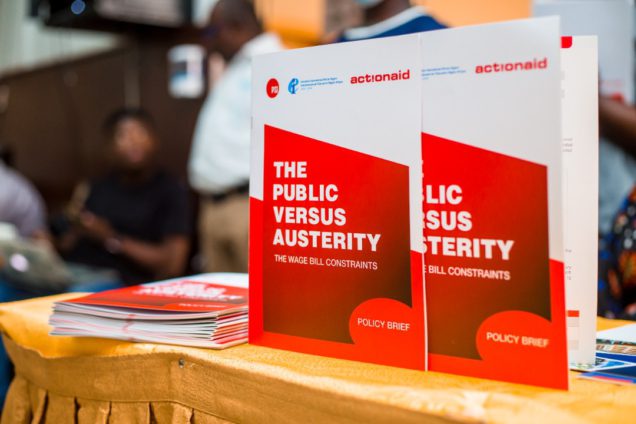In a bold move, Kenyan President William Ruto has announced a series of austerity measures aimed at reducing government expenses and promoting fiscal discipline. This development is a significant departure from the usual practice of African governments prioritising political expediency over economic prudence.
The austerity measures announced by President Ruto serve as a wake-up call for other African countries, particularly Ghana, to re-examine their fiscal policies and embrace sustainable economic practices.
The austerity measures announced by President Ruto are comprehensive and far-reaching. They include the suspension of non-essential travel by state and public officers, the removal of unnecessary offices, and the reduction of advisers in the public service.
The measures also include the integration of functions of state corporations into line ministries, the suspension of the filling of chief administrative secretaries' positions, and the halving of budgets for renovations across the government.
These measures demonstrate the Kenyan government's commitment to fiscal discipline and its willingness to make tough decisions to ensure sustainable economic growth. By reducing unnecessary expenses and streamlining government operations, the Kenyan government aims to free up resources for critical sectors such as education, healthcare, and infrastructure development.
Ghana, like many other African countries, faces significant economic challenges, including a large public debt, high inflation, and a persistent budget deficit. The country's economic woes are largely attributed to fiscal indiscipline, corruption, and a lack of transparency in government spending.
The austerity measures announced by President Ruto serve as a wake-up call for Ghana to re-examine its fiscal policies and embrace sustainable economic practices. The Ghanaian government must take a cue from Kenya and implement similar measures to reduce government expenses and promote fiscal discipline.
The austerity measures announced by President Ruto are expected to have several benefits. By reducing unnecessary expenses, the Kenyan government aims to free up resources for critical sectors such as education, healthcare, and infrastructure development.
The austerity measures demonstrate the Kenyan government's commitment to fiscal discipline and its willingness to make tough decisions to ensure sustainable economic growth. The measures aim to promote transparency in government spending and reduce corruption. By promoting fiscal discipline and reducing government expenses, the Kenyan government aims to create a conducive environment for economic growth and development.
Kenya's austerity measures serve as a wake-up call for African countries, particularly Ghana, to re-examine their fiscal policies and embrace sustainable economic practices.
Ghana must take a cue from Kenya and implement similar measures to reduce government expenses and promote fiscal discipline. The government of Ghana ought to form a committee to examine government spending and pinpoint areas where expenses might be reduced.
The number of ministers and advisors in the government should be decreased. The government ought to incorporate state corporation operations into line ministries. State and public officials' non-essential travel should be stopped by the government. Budgets for renovations should be cut throughout the government. The government ought to lessen corruption and encourage fiscal transparency.
To guarantee sustained economic growth, the government ought to enact legislation pertaining to budgetary discipline. Ghana may encourage fiscal restraint, cut government spending, and foster an atmosphere that is favorable to economic growth and development by putting these policies into practice.
By doing so, Ghana can create a conducive environment for economic growth and development, and ensure a brighter future for its citizens.
Latest Stories
-
Election 2024: EC destroys defective ballot papers for Ahafo and Volta regions
9 mins -
2024 Election: I am sad EC disqualified me, but I endorse CPP’s candidate – PNP’s Nabla
36 mins -
I want to build a modern, inclusive country anchored by systems and data – Bawumia to CSOs
37 mins -
Miss Health Ghana 2024: Kujori Esther Cachana crowned new Health Ambassador
45 mins -
Livestream: The manifesto debate on WASH and climate change
51 mins -
Alan Kyerematen saddened by NDC and NPP’s neglect of Krofrom Market in the Ashanti Region
55 mins -
CSIR Executive Director urges farmers to adopt technology for improved farming
1 hour -
Football Impact Africa’s Ghetto Love Initiative inspires change in Teshie
1 hour -
Peter Toobu calls for tighter border security over uncovered weapons at Tema Port
1 hour -
Gov’t has failed its commitment to IPPs – Ablakwa
1 hour -
Sell Chrome to end search monopoly, Google told
2 hours -
KATH to install seven new dialysis machines by end of November
2 hours -
Walewale: Police confiscate 37 bags of cocoa beans suspected of being smuggled out of Ghana
2 hours -
‘Expired’ Rice Scandal: FDA confirms rice was safe for consumption after rigorous lab tests
2 hours -
Many women have experienced intimate partner violence – Angela Dwamena Aboagye
2 hours

